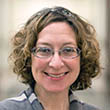No Ticks, No Poison Ivy: It's Personal Finance Virtual Summer Camp

Summer 2020 presents special challenges to parents and guardians, including keeping younger children occupied while adults work at home.
To keep the kiddos engaged while providing valuable, age-appropriate economic lessons, the St. Louis Fed’s Economic Education team is offering a Personal Finance Virtual Summer Camp. This fun, free camp is available anytime from May 20 to Aug. 14. It is designed to last about an hour each day, Monday through Friday, for one week.
Through award-winning videos, Q&As and online modules, children will discover and apply essential personal finance concepts, including:
- how money works
- how to evaluate everyday decisions
- how savings and credit are used
The camp has two tracks—one for elementary-aged children, grades 3-5, and one for middle-schoolers, grades 6-8.
I spoke with Andria Matzenbacher, who curated elementary camp resources, and Eva Johnston, who created the middle school syllabus. Matzenbacher is senior learning technology designer, and Johnston is a senior economic education specialist.
What kind of resources will elementary students discover?
Andria: The elementary camp is broken down into five days. Day One is all about money. It includes an online module called "Currency Academy," which takes students through learning about the $1 bill, $2 bill, $5 bill and so on. A partner video Q&A shows how the migration of monarch butterflies is similar to the life cycle of U.S. currency.
Day Two is about decision-making, and it features our "Once Upon a Decision" module, where young Ella learns about a tool she can use to make sound decisions. On Day Three, students focus on saving and savings goals with "Ella Saves Today," which is the second in the series from Ella's Adventures. It also includes an Explore Economics episode about how a young boy named Daniel wants a new bike helmet, and he makes a plan to get it.
Day Four is a little bit of a cautionary tale for children; it teaches about credit. Our protagonist has an opportunity to use credit with her friends, and she learns some valuable lessons along the way. Finally, Day Five concludes the camp with three videos from the Explore Economics series including the "Economics of Infrastructure" video, as well as one called "The Perfect Breakfast," which is all about trade.
That sounds really cool. How does the middle school camp differ?
Eva: The middle-school section is also divided up for five days. The first day's theme is similar; it’s about making money grow. We designed this so that if someone has both an elementary and middle school student, it could be fun for them to participate. There would be some learning transfer back and forth.
Day Two gets more into the stock market. Everybody hears about the stock market, but this helps older children understand what it is and what is meant by a capital market. It finishes up with the idea of wealth creation for all.
Day Three also parallels the elementary camp. It’s about choices. And I know middle-schoolers are faced with so many choices; they are more mature and feel more grown up and often want to make more choices. So, if a family happens to have children of different age groups, this is a nice point for possible discussion.
Day Four focuses on what is the economy and how it works, and Day Five wraps up by teaching about important economic concepts that students may be hearing in the news, including GDP, unemployment and inflation.
Can parents learn, too?
Andria: The nice thing about our Econ Lowdown portal is that it automatically tracks your child’s progress, and parents may follow along. Parents can see how their child has done on the assessments, such as the pre- and post-test on the modules, to see the gains made. They can also watch the videos with their child.
Once camp is over, the learning can continue. We also offer Parent Q&As that parents can print and use while reading select books with their child.
How is the St. Louis Fed’s Economic Education team adapting during COVID-19?
Eva: Our focus is normally on an educator audience, from pre-K through college professors. We always say, "Teach one, reach many." But we're not in normal times. Right now, we’re seeing that many parents are faced with trying to work from home, and they have their children with them.
This virtual camp was born out of the idea that it could give parents something valuable to have their children do—and the parents would have a chance to get a little bit of work done!
This blog explains everyday economics and the Fed, while also spotlighting St. Louis Fed people and programs. Views expressed are not necessarily those of the St. Louis Fed or Federal Reserve System.
Email Us


